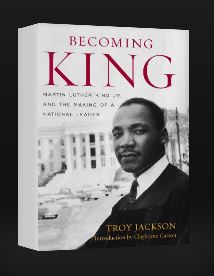
Black History Month, recognized also as African American History Month, holds a significant place in the cultural fabric of the United States, observed every February. This annual commemoration is a dedicated time to celebrate and acknowledge the remarkable achievements, contributions, and overall history of African Americans, showcasing how their efforts have left an indelible mark on the nation’s past and continue to shape its future.
Originally established as Negro History Week in 1926 by the esteemed Dr. Carter G. Woodson, this week-long celebration was strategically placed in the second week of February. This timing aligned with the birthdays of two pivotal figures in American history – Abraham Lincoln, who signed the Emancipation Proclamation, and Frederick Douglass, a Black Abolitionist. Fifty years later, in 1976, President Gerald Ford officially expanded the celebration to a month, recognizing February as Black History Month nationwide.
This designated month serves as a crucial opportunity for people across the nation to not only acknowledge the invaluable contributions of Black Americans to society but also to spotlight the pioneers who fought for civil rights and racial equality. A central figure in the American Civil Rights Movement, Dr. Martin Luther King Jr., often serves as a starting point for individuals seeking to build their understanding of African American contributions to the nation.
Born in Atlanta, Georgia, in 1929, Martin Luther King Jr., commonly referred to as MLK, emerged as a prominent Baptist minister and nonviolent activist. His leadership during the Montgomery Bus Boycott in the mid-1950s marked the initiation of the Civil Rights Movement, catalyzing significant changes in the 1960s. Additionally, King co-founded the Southern Christian Leadership Conference (SCLC), dedicated to training citizens in nonviolent protest for African-American equality.
Beyond his local influence, MLK gained international recognition for his pivotal role in advocating for justice. His iconic “I Have a Dream Speech” on August 28, 1963, during the March on Washington for Jobs and Freedom, resonated globally. In this powerful address, King articulated a vision for a racially integrated and harmonious America, emphasizing the importance of character over skin color. His speech, revered for its compelling rhetoric and imagery, left an enduring impact.
To honor Dr. Martin Luther King Jr.’s legacy, the United States established a federal holiday in 1983, observed every third Monday in January. This day provides an opportunity for reflection and action, inspiring individuals to actively contribute to the ongoing realization of MLK’s dream.
Several avenues exist to honor and implement the vision encapsulated in MLK’s dream, including promoting equality in all aspects of life – be it education, housing, or the criminal justice system. Additionally, educating oneself and others about historic and modern civil rights issues is crucial, fostering a deeper understanding of the challenges faced by the African American community. Lastly, building meaningful relationships and friendships across racial, socioeconomic, and ideological boundaries serves as a testament to the principles of unity and equality that Dr. Martin Luther King Jr. passionately advocated for throughout his life.
As we celebrate Black History Month, let’s recognize that the legacy of Dr. Martin Luther King Jr. is intertwined with the broader narrative of African American history. His advocacy for justice and equality serves as a cornerstone of the ongoing struggle for civil rights, making him not just a symbol of a movement but an integral part of the rich tapestry of Black history in the United States. The celebration of Black History Month is, in many ways, a celebration of individuals like MLK who have left an indelible mark on the nation’s journey toward justice and equality.
Updated March 2025





